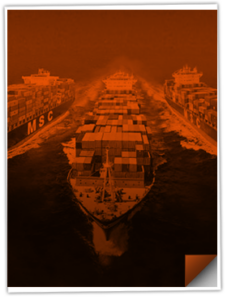Featured Headlines:
Southeast Asian Solar Cells Receive AD/CD Jail Break
OFAC Updates List of Sanctioned Medical Supplies
What’s the Deal with the USDA Plan, Man?
Ship Hitting the Fan for Importers
Southeast Asian Solar Cells Receive AD/CD Jail Break
- On June 6th, President Joe Biden announced a 24-month grace period for antidumping and countervailing duties (AD/CD) on solar cells and modules imported from Cambodia, Malaysia, Thailand, and Vietnam.
- Biden also revealed that the Commerce Department’s ongoing circumvention inquiry regarding the named products using parts and components from China will continue uninterrupted; and that the grace period will have no effect on the anti-circumvention proceedings.
- At the culmination of Commerce’s investigation, any possible AD/CD duties will apply; click here to read the official press release.
- Importers should note that existing duties on imports of solar cells and modules from China and Taiwan remain in effect.
OFAC Updates List of Sanctioned Medical Supplies
- As you may already be aware, the Office of Foreign Assets Control (OFAC) previously published a list of items defined as medical supplies and generally licensed for exportation or re-exportation to the Crimea region of Ukraine.
- Treasury officials recently amended the original list to replace the reference to General License 4 with a reference to the location of the general license in the Ukraine/Russia – Related Sanctions Regulations.
- Although no substantive changes were made, technical corrections have been made to the original list.
- For additional information, visit the OFAC website or contact the OFAC Assistant Director for Licensing (202-622-2480).
What’s the Deal with the USDA Plan, Man?
- The US Department of Agriculture (USDA) is in the process of developing a new strategic plan to guide the agency’s work over the next 5 years; click here to review the initial framework that was recently released by the USDA.
- Officials have asked the trade community to provide insight on the following questions:
- Are your interests represented in the plan?
- Are there opportunities for APHIS to partner with others to achieve the goals and objectives?
- Are there other trends for which the agency should be preparing?
- Are there additional items APHIS should consider for the plan?
- The deadline to submit comments is July 1, 2022.
Trucking Hires Go Higher
- The US Bureau of Labor Statistics (BLS) indicated that for-hire trucking employment grew rapidly again in May; nearly 25,000 new employees were added to US trucking company rosters.
- Non-seasonally adjusted trucking employment is now up 5% year-on-year.
- While trucking volume and employment is highly seasonal, the employment gains in April and May exceed expected seasonality. BLS economists believe that we may be nearing a hiring peak for this cycle—the last peak occurred in 2019.
Get Out of Rail Ain't Free
- Norfolk Southern (NS) Railroad continues to face criticism for shortening free time at many key rail ramps. The shorter the free time, the greater cost to US shippers.
- On July 18, NS will also increase the fee for pulling a box off a stack and placing it on trucker-owned chassis. “Flip charges” will now be $125 per container for 14 NS depots across the US. (The beat goes on for US shippers!)
- An acute shortage of marine chassis has more than doubled expected dwell times nationally for international cargo trying to a hop on a train.
- Despite dramatically increasing fuel surcharges for domestic trucking, US railroad intermodal volumes have shrunk by over 5% in 2022 year-to-date; it’s very hard to see how this trend with change with fee increases and chronically long dwell times.
- To ensure that shippers don’t feel lonely, US taxpayers have coughed up $368 million to upgrade rail tracks and infrastructure across the country. Investment highlights include:
- The US Department of Transportation has ear-marked $6.2 for upgrading the tracks that connect Savannah with Georgia’s first inland port.
- The Port of Baltimore has received a $15.6 million grant from the US Federal Railroad Administration (FRA) to complete the long-awaited expansion of the Howard Street Tunnel to allow it to accommodate double-stacked rail cars.
US-EU Hug at the Hague
- Don Graves, US Deputy Secretary of Commerce, concluded a four-day trip to The Hague and Brussels to help establish the foundation for security and economic collaboration between the European Union (EU) and the US.
- Perhaps one silver lining from the black cloud of Russia’s aggression in Ukraine, transatlantic relations have thawed considerably after a notable frostiness during the Trump administration. Graves pursued the following points of emphasis:
- Reduction of trade barriers;
- Securing supply chains;
- Data privacy improvements;
- Russian export controls; and
- Semi-conductor production.
- At the end of the mission, the American Chamber of Commerce’s European Union membership met with Graves and EU representatives to discuss the US Commerce Department’s roadmap to grow trade and security alliances with the EU.
Air Heads to Spot
- Thanks to myriad pandemic-related disruptions to operations and capacity problems, the airline industry has largely shifted to spot quotes to best manage unpredictable business realities.
- Spot bids provide the airline industry much greater flexibility, much needed in times of war and Covid.
- Airlines have invested heavily in technology and improved processes, and they have greatly improved their ability to produce spot quotes efficiently and effectively. Airline investments in quoting have allowed them to offer dynamic spot quotes to customers quickly, and industry observers believe that spot quoting will likely dominate for the foreseeable future.
Ship Hitting the Fan for Importers
- Target, Wal-Mart, Amazon, The Gap, and Macy’s have all warned investors to lower expectations of returns for the first two quarters of 2022.
- Importers are facing the following profit headwinds today:
- Elevated labor costs;
- Excess inventory levels;
- Inventory arriving at wrong time;
- Continued elevated transportation rates; and
- High fuel costs.
- When looking at future consumer demand, importers can only add to their worries:
- Highest rate of inflation in a generation;
- Continued shift from goods to experiences spending;
- US savings rate shifted from 33.8% in April,2020 to 4.4% in April 2022;
- US credit card debt to eclipse $1 trillion;
- 14 million Americans with more than $10,000 in credit card debt; and
- Total US borrowing (including mortgages, car loans, and student debt) is above $16 trillion (an all-time high).
Money Talks or ILWU Walks
- On May 10th, the International Longshore and Warehouse Union (ILWU) sat down with the Pacific Maritime Association (PMA) to begin negotiations for the master contract that expires on July 1. Unfortunately, the meetings were halted quickly, leaving US shippers and consumers, now desperate for greater supply chain efficiency, to nibble on their fingertips and pull out their hair by the handful.
- With US ports and rail ramps congested and/or poorly stocked with chassis, and with a chronic backlog of vessels anchored in US harbors, industry analysts believe an ILWU strike of any length would take 9-12 months to overcome.
- During negotiations for the last four master contracts, the existing deal expired and slowdowns or a PMA lockout occurred. The last contract renewal in 2014 required 9 months of negotiations, and the shock waves for the global supply chain were felt for an additional 9 months.
- Despite their infamous past, officials from the ILWU and PMA have indicated that greater levels of collaboration came into play during the pandemic. They see this as a more solid foundation for striking a deal (pun NOT intended!).
- For their part, US importers continue to hedge their bets when possible. The West Coast’s share of Asia imports has fallen below 60% for the first time since 2014.



